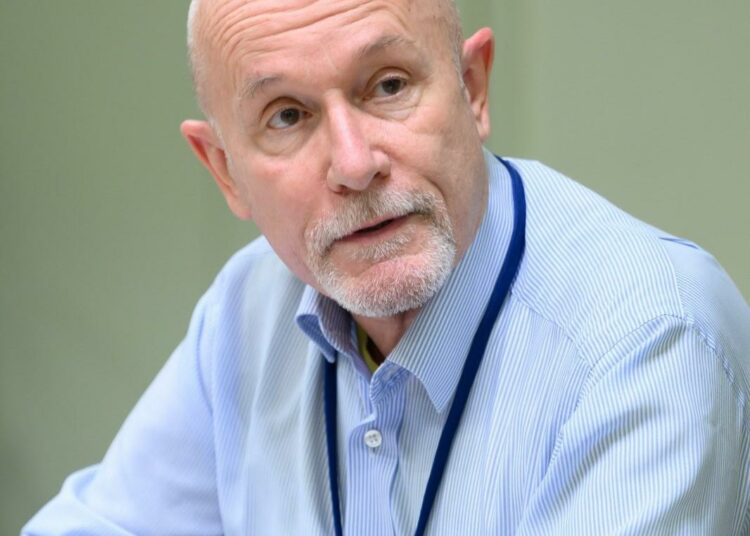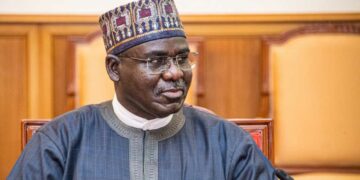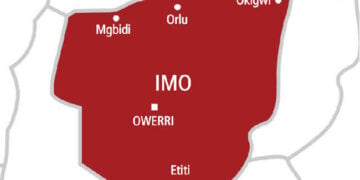Many African countries don’t have social protection programmes for the elderly, Senior Research Officer at the French Development Agency, Serge Rabier, has said.
In an interview with LEADERSHIP, Rabier said African countries’ responses to the challenges linked to the increase of elderly populations differ between Northern and Southern African countries on the one hand and sub-Saharan African countries on the other.
While the former has experienced a proven population ageing in recent decades, it was gathered that the sub-Saharan countries are still young and need to face the challenges of ageing.
“Consequently, South Africa and Algeria, for example, have implemented a universal pension system and expanded social protection, while in the latter, related public policies remain limited,” Rabier said of the countries that have social protection policies for the elderly even though ineffective.
“On the African continent, the sub-Saharan region remains where population growth is by far the fastest: 2.2% in 2022 (even 3% in Central Africa) compared to 1.6% in North Africa and 0.9% in Southern Africa.
“Ageing in Africa depends on declining fertility and rising life expectancy.
Therefore, the implementation of social protection systems has to take into account several factors, such as population size, age distribution, fertility rates, life expectancy, urbanisation levels, the breakdown between formal and informal sectors of the labour market, and social norms and family structures,” he said.
Rabier said despite governmental efforts, several factors contribute to low coverage rates for old-age pensions.
“The first one is the imbalance between the increasing number of beneficiaries relative to contributors, particularly when a massive portion of the workforce is employed in the informal sector, where jobs often lack formal contracts or benefits. The second one is the shallow fiscal base and low tax revenues that force governments to struggle with budget constraints and hamper their ability to fund comprehensive social protection systems. Finally, bureaucratic red tape and corruption add up to poorly trained and structured administrations, and inadequate infrastructure often hinders the effective implementation of social protection programmes,” he said.
According to Rabier, the initial finding that contributory social protection systems primarily target the formal sector employees must be remembered, as the informal sector workers are largely unknown and, therefore, unprotected.
“Therefore, some governments have introduced voluntary schemes to encourage informal workers like self-employed individuals to contribute, but participation remains low. However, the low contribution rates do not allow sufficient coverage to meet the risks encountered (illness, accident, old age),” he said.
He said some countries have implemented cash transfer/safety net programmes to address the needs of the most vulnerable populations but added that such programmes were implemented during the COVID-19 crisis.
Regarding what other continents are doing, Rabier said Asia and Latin America have been experiencing demographic transitions for decades, resulting in the so-called “first” demographic dividend.
“In Thailand, South Korea, and more recently in Indonesia, Brazil, and Chile, for example, governments have integrated social protection financing into broader economic growth strategies, new taxation systems, social insurance models, and more comprehensive legal and policy frameworks.
“Globally, the lessons learned are threefold: Implementing innovative and precise taxation systems and enhancing domestic revenue mobilisation, linking social protection systems with economic and development policies and improving data collection and monitoring to better identify and address the needs of their populations,” he said.
Rabier disclosed that by 2050, the number of elderly individuals (aged 60 and above) in Africa is expected to reach 200 million.
“Even though more people will move to cities, the continent will remain rural and face more significant challenges in supporting its ageing populations. These dynamics will place additional pressure on existing social norms, family and community structures, and social protection systems.
“Although not all African policy-makers have yet realised the stakes, Africa is called upon to face the anticipated ageing of its population.
“The growing number of older people will necessarily lead to implementing public policies that meet their needs. The first challenge is undoubtedly the extension of social coverage, with currently the lowest rate of social coverage worldwide, which is 17% of the population.
“This low rate is partly explained by the importance of the informal economy, which does not allow for the broader development of a contributory social protection system, particularly in rural areas where the inhabitants are very often engaged in agriculture and, therefore, do not pay any social security contributions. The aim is now to consolidate public policies that will help extend social protection to a more significant proportion of the population in both rural and urban areas.
“However, the development of social protection systems for older people (health and retirement) is based on two pillars that are still very uncertain but have historically been the prerequisites for their expansion.
“On the one hand, the proper collection and use of tax revenues for financing social protection is a significant challenge to the sustainability and extension of existing systems of protection in African states. A greater linkage between retirement and health coverage seems essential to promote, especially as the need for healthcare costs is increasing with age and still very often weighs on families. This is in line with universal health coverage, where older people could be among the first beneficiaries, along with children. However, emphasis should be placed on access to health care for all ages across the continent. Better health coverage for all will lead to more prevention and a better quality of life at an older age on the continent,” he said, adding that two historical precedents of implementation of public policies in this matter, whether it be Europe or China, show that it is the sustained growth of an industrial and manufacturing model of development that has allowed the implementation of these public policies, a gradual evolution in Europe (between the establishment of the Bismarckian model in the late 19th century and that of the welfare state and the welfare state in the 20th century), more collected and dynamic since the 2000s in China.
“However, on the African continent, this economic model generating formal wage earners has not developed and, what is more, the consequences of climate change raise questions about the future development model of the continent, Making it even more difficult to think and develop public policies on ageing, at a time when they will be increasingly necessary,” Rabier added.











